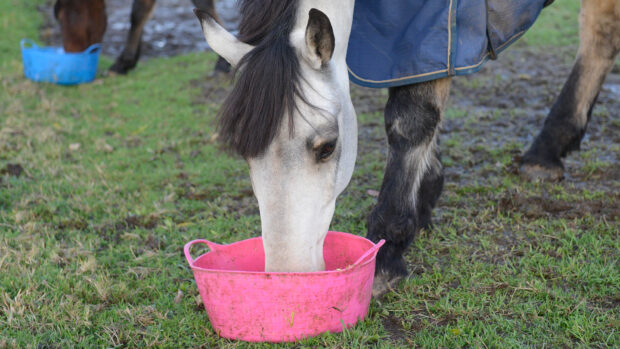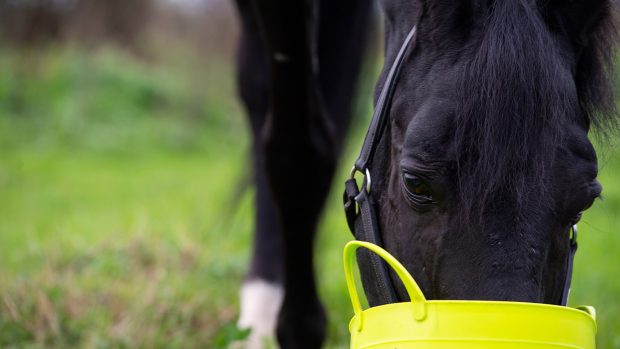The requirement for nutrients such as the vitamins and minerals is the subject of research and debate in both human and equine nutrition alike.
While human and equine health depends upon many factors, the diet plays a central role in maintaining health. Nutrients play a crucial role within this and in times of stress the need for certain nutrients may increase.
Some people buy a specialised supplement because they know that the nutrient supports a specific organ, tissue or system within the body.
Vitamin C is a common example for humans. Many people take between 500- 1000mg a day as a nutritional support for the immune system, considerably in excess of the 20mg required per day for optimal wound healing.
Taking vitamin C at levels far exceeding the human body’s minimum requirements is recognised as “optimum nutrition”.
Some of the areas that have recently been highlighted as important in optimum nutrition for humans, have also been shown to be important for your horse.
Anti oxidants
During the past 18 months the human press has been full of the benefits offered by anti oxidants to improve our health and longevity. In humans anti oxidants have been found to have positive health benefits as they help prevent tissue damage caused by free radicals.
Free radicals are a normal part of cell metabolism and are part of the body’s way of destroying invading microorganisms through the immune system.
Under normal conditions, 3-5% of the body’s oxygen forms free radicals. However, exercise, stress, inflammation, UV light and certain drugs can all increase the amount of free radicals found in the body.
An excess of free radicals can lead to cell death, a quickening of the aging process and a reduction in resistance to disease and stress. An increase in free radicals means that the body needs more anti oxidants to minimise cell damage.
Humans get anti-oxidants by eating vegetables and fruits, while horses in the wild eat a lot of vegetable matter as grass, which is high in anti oxidants.
However, many of us feed hay either through the winter or all year round and this is low in anti oxidants. In addition, many paddocks have a limited variety of grasses, which restricts the variety of anti oxidants available. This may lead to the horse receiving a reduced level of anti oxidants, which will require supplementation to achieve “optimum nutrition”.
Why feed anti oxidants?
- Reducing arthritis: Inflammation of the joints is often the first sign that a person maybe developing atherosclerosis (arthritis). It has been shown that inflammation is one of the factors that make atherosclerosis worse. Anti oxidants reduce the inflammatory process.
- Aging: The damage done by free radicals is thought to be one of the causes of aging. People who eat a lot of fruit and vegetables have better health and suffer less from the diseases associated with aging.
Essential Fatty Acids
We are being encouraged to eat oily fish at least once a week because it is one of the richest sources of Omega 3 fatty acids. Research has shown that essential fatty acids (EFAs) — called essential fatty acids, because the body cannot make them — have anti-inflammatory effects and are valuable super nutrients that should be fed on a long term basis.
Omega 3 and 6 essential fatty acids are involved in the manufacture of cell membranes and every cell in our horses’ bodies is dependent upon the diet providing enough essential fatty acids for normal functioning.
Fatty acids are natural blood thinners; they can prevent blood clots, which can lead to heart attack and stroke. Essential fatty acids contain natural anti-inflammatory compounds that can relive the symptoms of arthritis and autoimmune diseases.
A diet low in essential fatty acids could result in skin problems, such as dandruff, eczema, splitting nails and dull brittle hair. More importantly, numerous studies have shown that compounds found in essential fatty acids can block tumour formation.
Body builders claim that Omega-3 fatty acids can increase their stamina and help them recover more quickly from workouts. This is thought to be because oil contains a natural antioxidant, which could explain why it helps tired muscles recover more quickly.
In horses a source of dietary oil will reduce the amount of carbohydrates fed and high oil diets are routinely recommended for horses who suffer azoturia. In addition, its anti- inflammatory effect may also help reduce muscle soreness.
So if you or your horse feels stiff and lethargic in the morning maybe you should look at tweaking your diets and if either of you are under stress, then nutritional support must be considered to ensure that you and your horse is receiving “optimum nutrition”.
|
What to feed: Optimum nutrition
There are a number of products that can be incorporated into your All Dodson & Horrell products include QLC, an anti oxident package, while Ultimate Balancer from Dodson & Horrell’s Specialist Horse range For further information and friendly feeding advice call the Dodson & Horrell Feed Helpline (tel: 0870 442 3322) Normal national call rates |



